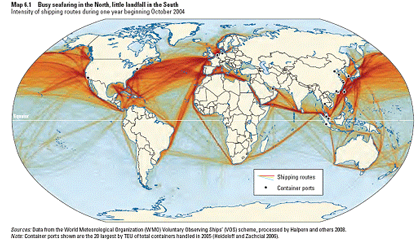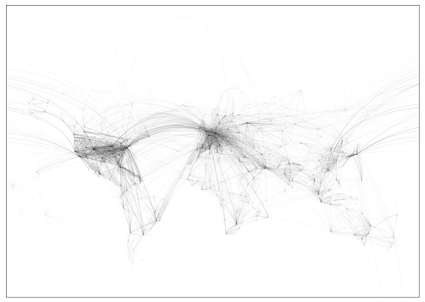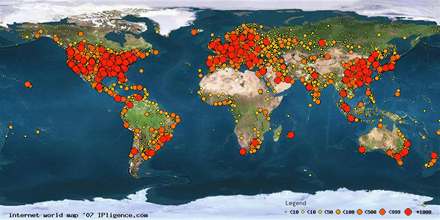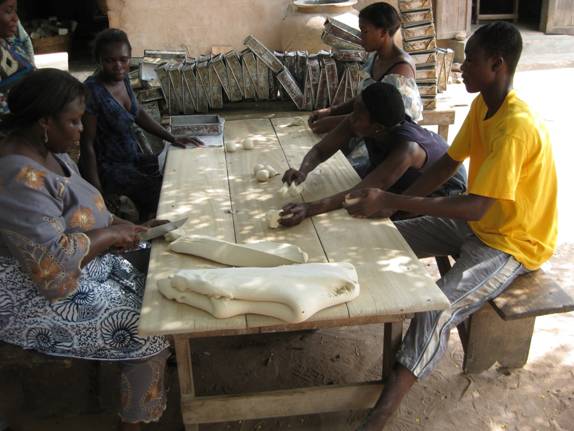Set a Big Goal. Give All to Meet It. This is Stupid.
The first two sentences come out of thousands of commencement addresses, not to mention inspirational foreign aid addresses. But they’re bad advice. Social entrepreneurs in foreign aid might learn from private sector entrepreneurs, who don’t stick to fixed goals.
A University of Illinois graduate moved to Silicon Valley with a great goal (perhaps inspired by the Illini commencement address) – develop security software for hot-selling handheld devices like the Palm Pilot. He assumed that enterprises were soon going to be using Palms as primary means of communication and sharing documents, and would need security to protect business secrets. “Any minute now, there’ll be millions of people begging for security on their handheld devices,” he thought. He was wrong – he never found a demand for handheld security software.
He could have kept trying to make his original idea work. Entrepreneurs that do stick to fixed goals are very good at least at one thing – wasting investors’ money. An idea for an online grocery startup, Webvan, managed to go through $1 billion before finally pulling the plug.
Illinois Man was different. He shifted to Plan B. Sell his cryptography software. Still no takers. We can skip over Plans C, D, and E, which all failed.
Plan F was a system for securely transferring cash from one Palm Pilot to another. He put a demo on the Internet so people could see how great it would be for Palm Pilots. People liked the web demo and started using it for real transactions, while the demand from Palm users still failed to materialize. eBay users started asking if they could put the web demo in their ads for people to pay them. There was no demand for the product, only for the web demo.
Illinois Man finally realized what might succeed. He forgot about Palm Pilots. Plan G was a system for making secure online payments for sites like eBay. His Plan G company was called PayPal, and his name was Max Levchin. eBay eventually bought PayPal for $1.5 billion. The story is from a new book by John Mullins and Randy Komisar, Getting to Plan B.
This principle translates to social entrepreneurship. Mohammed Yunus was trained as an irrigation economist. If he had stuck to fixed goals they would have involved irrigation. We would never of heard of him or of microcredit (at least until someone else without fixed goals came along).
Why is entrepreneurship so hard? It is always very uncertain what you can do well that the customers will want. Finding that sweet spot is a process of trial and error and gathering feedback. Research cited by Mullins and Komisar shows it takes 58 new product ideas to develop one successful product.
An even better book on this theme of searching for what works rather than sticking to the pre-conceived plan is Bill Duggan’s Strategic Intuition. Duggan uses a nice military analogy. Why was Napoleon such a successful general? Before Napoleon, military strategy was about how to take a fixed position from the enemy. Napoleon realized that the point of a war was to defeat the other army. He said, forget the targets, just keep the army moving relative to the other army until you are in the most advantageous position, then attack.
Of course, this advice about flexible goals might conflict with previous advice about specialization. Yes, you want to get the gains from specialization, but be flexible about what your specialization will produce for the customers. So you might be a health specialist, but which among many interventions that you could do will pay off? James Grant, a former director of UNICEF, knew he wanted to save children’s lives, but he was open to any way to do it. He and his staff stumbled on oral rehydration therapy, which has since saved millions of babies from dying from diarrheal diseases at a cost of about 12 cents per dose.
The economists’ version of this mentality is to keep doing and redoing your cost/benefit analysis. The rational next step is one with the highest ratio of benefits to costs. Many goals are set that ignore cost/benefit analysis altogether (Millennium Development Goals, for example). Other goals might be set with some vague notion of predicted costs and benefits, but these predictions are usually wrong. You have to be willing to adjust as benefits and costs turn out to be different that expected, and often shift to another activity altogether – Plans B,C,D,…Z.
Obviously the official aid world of MDG Plans and Poverty Reduction Strategy Papers does not have a clue about the entrepreneurship needed to solve problems.
Official aid doesn’t know how to operate in a world where most Problems are solved by entrepreneurs who originally intended to solve a DIFFERENT Problem. So it’s up to you private and social entrepreneurs.
 From Aid to Equality
From Aid to Equality




 We see Beyoncé specializing in music videos, which she trades to Bill Gates for his specialized production of software. We will get more of both music videos and software from Beyoncé and Gates than if each (without the possibility of trade) had been forced to supply their own needs for software and music videos.
We see Beyoncé specializing in music videos, which she trades to Bill Gates for his specialized production of software. We will get more of both music videos and software from Beyoncé and Gates than if each (without the possibility of trade) had been forced to supply their own needs for software and music videos.
 Here’s an example of a simple rule. But is it as simple as it seems? A literal reading of the rule would ban a woman wearing a dress and sandals from entering the store, while it would allow either gender to wear a shirt, shoes, and nothing else. In a Northern beach town in the winter, this rule would be irrelevant. In the same beach town during the summer, if it were particularly carefree, the rule might be ignored.
Here’s an example of a simple rule. But is it as simple as it seems? A literal reading of the rule would ban a woman wearing a dress and sandals from entering the store, while it would allow either gender to wear a shirt, shoes, and nothing else. In a Northern beach town in the winter, this rule would be irrelevant. In the same beach town during the summer, if it were particularly carefree, the rule might be ignored.
 “[O]pen trade and international investment are the surest and fastest ways for Africa to make progress,” President Bush said when he signed an extension to the African Growth and Opportunities Act (AGOA) in 2004. Originally signed into law in 2000, AGOA removes US quotas and duties for thousands of products coming from some 40 sub-Saharan African countries.
“[O]pen trade and international investment are the surest and fastest ways for Africa to make progress,” President Bush said when he signed an extension to the African Growth and Opportunities Act (AGOA) in 2004. Originally signed into law in 2000, AGOA removes US quotas and duties for thousands of products coming from some 40 sub-Saharan African countries.


 Individual liberty is a precise concept and a powerful ideal. It has an enormous moral appeal – “all men are created equal, and are endowed by their creator with certain inalienable rights, that among these are life, liberty, and the pursuit of happiness.” Jefferson wrote these words even though there was only liberty for propertied white males at the time in the US, but these words would serve as a beacon through American history, which Lincoln would invoke to motivate the Emancipation Proclamation, and which Martin Luther King would invoke to end Jim Crow and get de-facto voting rights for blacks.
Individual liberty is a precise concept and a powerful ideal. It has an enormous moral appeal – “all men are created equal, and are endowed by their creator with certain inalienable rights, that among these are life, liberty, and the pursuit of happiness.” Jefferson wrote these words even though there was only liberty for propertied white males at the time in the US, but these words would serve as a beacon through American history, which Lincoln would invoke to motivate the Emancipation Proclamation, and which Martin Luther King would invoke to end Jim Crow and get de-facto voting rights for blacks.
